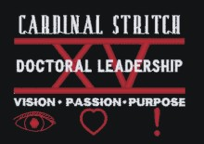Now my sister who had math classes with me in high school laughed her head off when I told her I was going to be a math teacher. She had experienced first hand when I had tried to teach her something about math. My rigidity and my frustration at why she didn't understand came out in the worst ways. "I can't believe you don't get that!" was a common phrase I used to use with her. She honestly wanted to know how I was going to navigate the teaching profession with no patience or understanding of others who didn't get math.
In my student teaching and in my first teaching job it seemed easy for me. I had a firm understanding of the math concepts and could almost always find ways to tell a story and engage most of the students in what I was doing. It was those I couldn't engage that I really struggled with. Then the blame game started. It had to be because they were discipline problems...or it was because their parents were bad role models...or it was because of this...or of that. What I didn't get was the very message Howard Behar (2010) speaks of when he said it isn't about the coffee, rather it is about the people. It shouldn't have been about the math, it was about the students.
It has taken many years for this to really sink in to my thick scull. It IS about the people. Throughout our time in many different summer institutes and during out leadership and learning years, over and over again we have learned it IS about the PEOPLE! Consider these quotes from different sources on leadership:
- "People do not care how much you know until they know how much you care." (Maxwell, 2002. p. 79)
- "Applying the human equation to leadership challenges conveys respect for the fundamental principle that individual needs have value and the personal fears deserve consideration." (Reeves, 2002, p. 27)
- "In leading people, you will tune into their needs as well as your own." (Heifetz & Linsky, 2002, p. 165)
Once I was able to figure this out, it has made a tremendous impact on my well being, my ability to serve in my profession, and in the collegial relationships that I build with those I work with.
I have come to know that the way to strengthen myself is to be able to get to know and to help support others. It wasn't so much about teaching of mathematical concepts as it was for building a relationship and instilling a love for mathematics because I could connect individually with each student about how I saw the world through a mathematical lens. This transformation has been a long, winding process for me, but has never been as clear as it has been this summer.
As Behar (2010) reminds us, "you don't always get what you want, you get what you need and it will come at the most appropriate time." It must be my time!
Baher, H. (2020, June). Leadership principles from a life at Starbucks. Lecture delivered at Summer Institute at Cardinal Stritch University, Milwaukee, WI.
Heifetz, R. & Linsky, M. (2002). Leadership on the line: Staying alive through the dangers of leading. Boston, MA: Harvard Business School Press.
Maxwell, J. C. (2002). Leadership 101: What every leader needs to know. Nashville, TN: Thomas Nelson.
Reeves, D. B. (2002). The daily disciplines of leadership: How to improve student achievement, staff motivations, and personal organization. San Francisco, CA: Jossey-Bass.



No comments:
Post a Comment